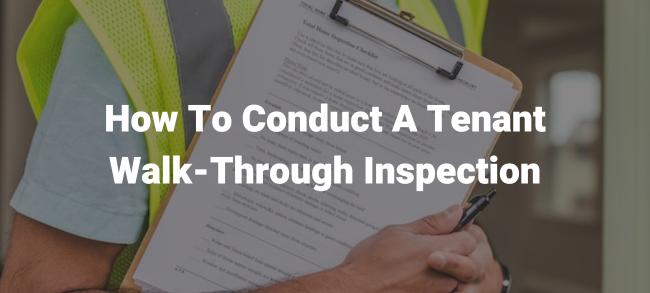How to Rent Your Former Home
Renting a home can provide far greater returns than selling a home. Aside from the tax benefits, you can also accumulate long-term wealth by investing in a rental property.
However, when renting your former home, one thing could get in the way of your success – your emotions!
Our homes are filled with memories. They serve as the backdrop of the families we’ve built, parties we’ve thrown, and the friendsgivings we’ve hosted. It is where we retreat to when we’re worn out, when it storms, and when we’re sick. All these add to an emotional connection to our homes.
But, if you decide to become a rental property owner and be successful at it, you’ll need to detach from all these emotions. What used to be your home is now an investment. And there is a big difference between the two.
Here is how to turn your former home into an investment property that brings in income.
Make your rental property desirable to tenants.
An attractive property is always easier to rent. You’ll not only have an easier time finding tenants, but you may also have a low tenant turnover.
The following are tips to help you get started.
- Emphasize your property’s positives.
Basically, sell what your property has. Don’t focus on what it may be lacking. Is the property in close proximity to public transportation? Sell that. Have a balcony or backyard patio for summer? Sell that.
- Understand that bathrooms and kitchens sell properties.
The first way to attack either of these rooms is to clean them! Not remodel or renovation. Scrub cabinets inside and out, polish all appliances, mop the floors, and clean the toilets, tub, and all the hardware.
- Easy makeover with paint.
A fresh coat of paint can do wonders in revitalizing practically any interior living space. It can brighten dim hallways, revive tired walls and highlight architectural features like high ceilings and built-in bookcases.
- Spruce up the curb appeal.
First impressions are lasting impressions. If the property’s exterior isn’t up to par, tenants may not even want to look inside. As such, remove any chipped paint, torn window screens, or broken banisters. Make sure the lawn and shrubbery are well-manicured.
Neutralize the house.
You probably have personal touches around the home. You may have framed family photos hanging on the walls or painted the dining room bright red. But now that you’re renting the place, you need to depersonalize it .
Here are some steps on how to depersonalize your home:
- Not everyone likes pets, so pack away their gear when showing your home. Obvious signs of pets include toys, feeding bowls, and pet beds.
- Although it can be difficult to keep kids’ toys clean, they can make the house look messy. Corral all the toys in a storage closet.
- Buyers will inevitably look inside cabinets, so keep them tidy.
- Pack away the family photos to keep the home neutral.
- Avoid leaving storage containers around the house as it instantly tells buyers that the house has insufficient storage.
- Remove bulky furniture and replace it with smaller, lighter furniture.
Advertise the property for rent.
Once you depersonalize the home and the house is show-ready, advertise it. Your goal should be to get it in front as many prospective tenants as possible.
Rental property listings work great in this regard. Good examples include Zillow.com, Realtor.com, Craigslist.com, and Apartment.com.
To list your home in any of these platforms, you’ll require photos. So, try to take high-quality photos that display your property in the best way possible prior to posting them.
Aside from rental listing sites , you can also use social media sites like Facebook and Instagram. You can create highly targeted advertisements, or simply ask your friends to share your rental property on their personal profiles.
Screen your tenants well.
When prospective tenants call to view your rental, prepare a set of rental questions to ask them. This will not only save time but will also help weed out bad tenants right away.
These are some questions you should ask prospective tenants:
- Why are you moving?
Look for legitimate answers like “I’m moving closer to my new job” or “I’m moving because I need more space.” If the renter says, “I’m moving because my landlord terminated my lease” or “My landlord and I just don’t get along”, then you should definitely reference the landlord to find out why.
- Will you be able to pass a background and credit check?
If they agree, go ahead and schedule a showing. If not, continue and pass on the prospective tenant and keep looking.
- Do you have pets?
If you don’t allow pets and the prospective tenant has one, do both yourselves a favor and stop the interview. However, if you allow pets, then explain your pet policies. For example, the number of pets, size of pets and pet fee/deposit.
- Can you pay move-in costs upon signing a lease?
If they can, continue with the interview. But if they can’t, aren’t sure or say, “Not right now”, then politely move along the next applicant.
These are questions you shouldn’t ask prospective tenants:
- Don’t ask a tenant whether they have ever been arrested.
There is a big difference between being arrested and being convicted of a crime.
- Avoid asking questions that violate the Fair Housing Rules. For example:
- Do you go to church in this neighborhood?
- Where do your kids go to school?
- What is your first language?
- Where were your parents born?
- Are you white or Hispanic?
Respect your tenant’s privacy rights.
Essentially, leave your tenants live in peace . Don’t barge in whenever you wish. Once you have accepted rent and deposits from a renter, you no longer have the enter the house as you please.
According to landlord-tenant laws, tenants have a right to “ quiet enjoyment ” of the premises. You may only enter the premise once you’ve notified your tenant in writing. And, the reason for the entry must be reasonable. For instance, to:
- Make property repairs
- Show the property to prospective tenants
- Make regular property inspections and maintenance
- With the permission of the tenant
In addition, the entry times must be reasonable. For example, from 8:00 a.m. to 5:00 p.m. during weekdays and from 9:00 a.m. to 3:00 p.m. during weekends.
In the end, being a landlord has its ups and downs. Get it right and it can be a source of income and great fulfillment. On the flipside, if you are struggling with managing your rental property, you can look into getting help from a local property management company.











